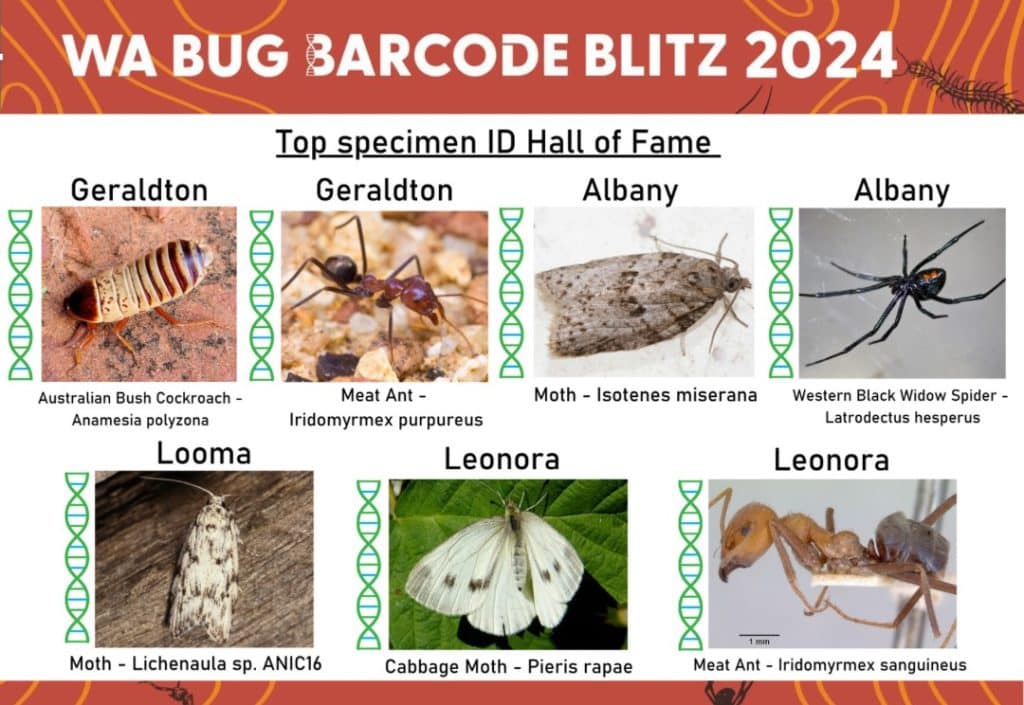We are thrilled to share the results from the first-ever WA Bug Barcode Blitz, a ground-breaking event that debuted during National Science Week 2024. Watching students from remote areas like Leonora, Looma, Geraldton, and Albany rise to the challenge of identifying local invertebrates using DNA barcoding technology was both inspiring and humbling.
The Bug Barcode Blitz has opened new doors for these students, aged 12-17, who participated with remarkable enthusiasm and dedication. They weren’t just learning about science in theory; they were doing science in practice! Under the guidance of expert scientists via livestream, students collected their specimens, extracted DNA, and prepared samples for genetic sequencing—tasks usually reserved for professional research labs. These samples were sent to Perth, where sequencing unveiled fascinating results.
Our students’ accomplishments are a testament to the incredible potential of citizen science. For instance, students from Leonora made two exciting discoveries: they identified the Pieris rapae, also known as the cabbage moth, and Iridomyrex sanguineus, commonly referred to as the meat ant. Students from other regions found a redback spider, a bush cockroach, and even an undescribed species of moth. These discoveries not only excited the students but highlighted the role this project can play in identifying Australia’s vast array of unknown invertebrates.

Watching the students engage with cutting-edge equipment and methods usually reserved for lab-based researchers was incredibly rewarding. Their feedback showed just how much they enjoyed the process and, most importantly, the sense of accomplishment that came from their discoveries. It was wonderful to see the spark in their eyes as they worked together, learning about their environment in ways that could only be possible through hands-on experience.
The success of this project demonstrates the power of community-driven science. By enabling students to contribute to biodiversity research, we are helping to build a more robust scientific database for Australia. These activities not only bring valuable genetic data to national conservation efforts but also encourage young people to see themselves as part of the solution to our global biodiversity challenges.
The Bug Barcode Blitz was made possible by the collaborative efforts of BioBarcode Australia, the Harry Butler Institute at Murdoch University, Australian Genome Research Facility (AGRF), Promega Australia, and Fisher Biotec Australia, and through funding from the InspiringWA committee. Together, we are breaking new ground in science education and community engagement, showcasing the power of teamwork in advancing both research and learning.
The WA Bug Barcode Blitz 2024 has set a promising foundation, and BioBarcode is proud to lead an initiative that brings science into the hands of young Australians. Here’s to more discoveries, more young scientists, and a brighter future for biodiversity conservation!
